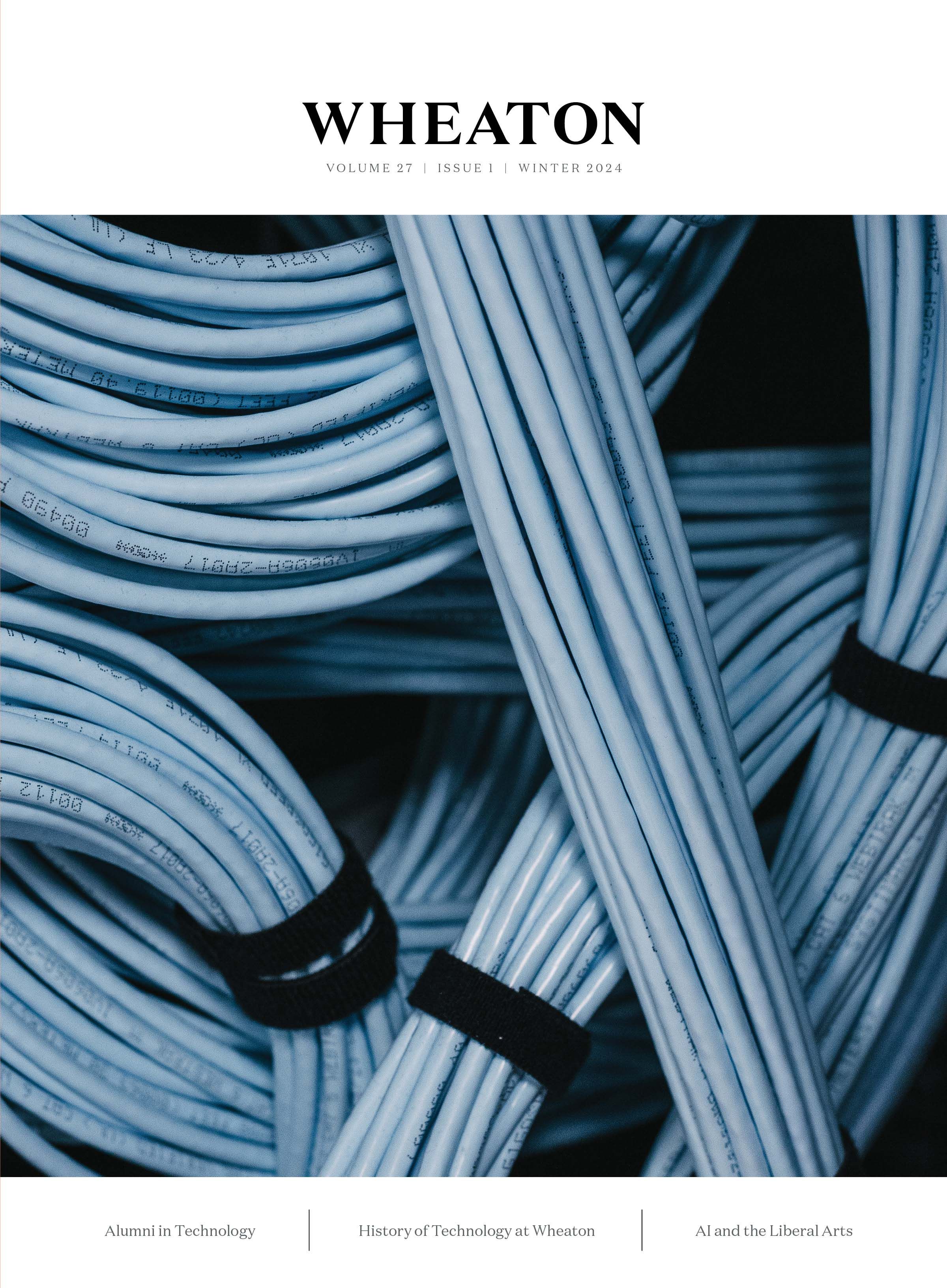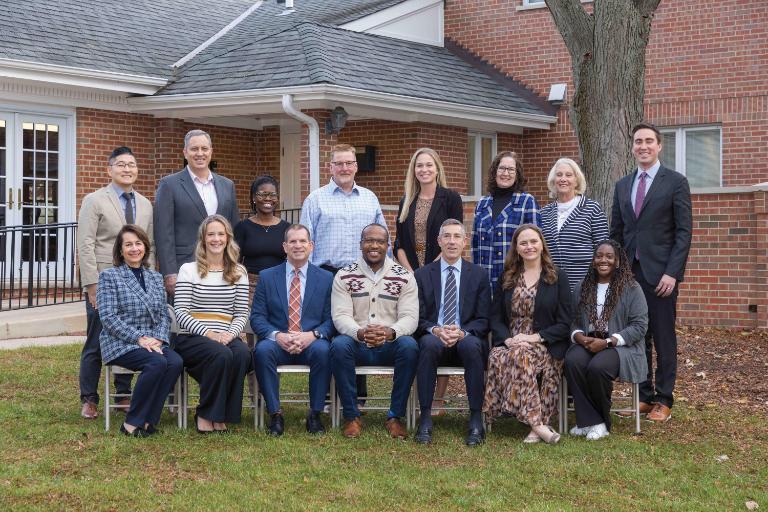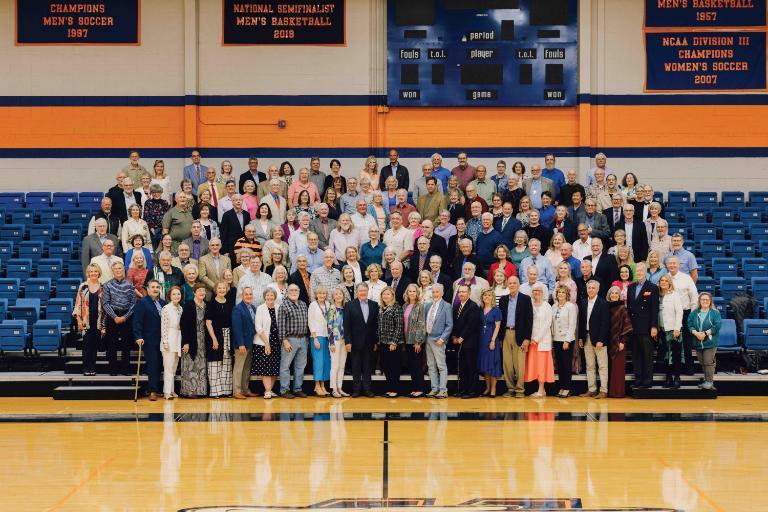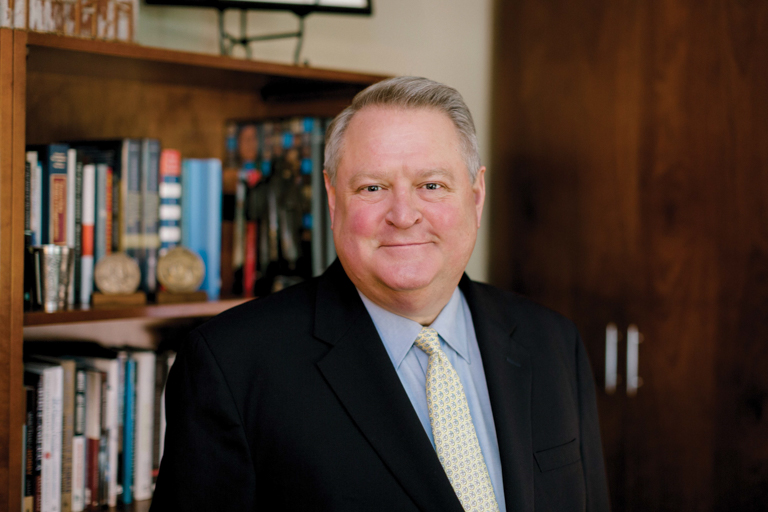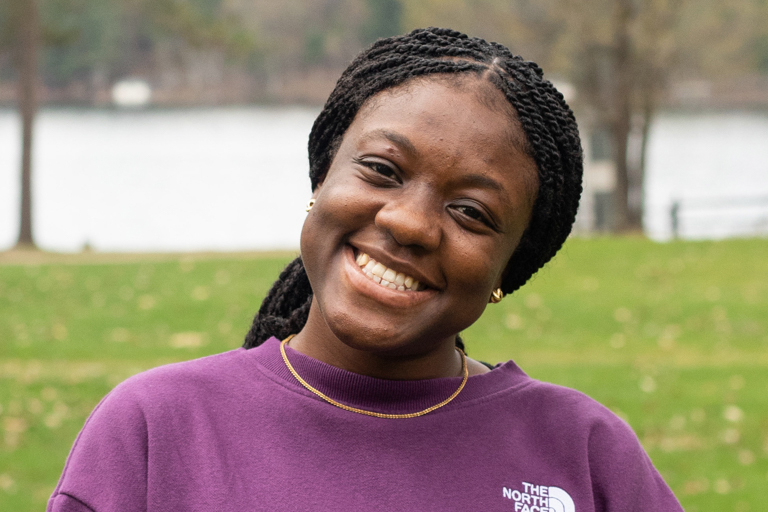The Road to Forbes’ 30 Under 30 Recognition
Words: Grace Kenyon ’22
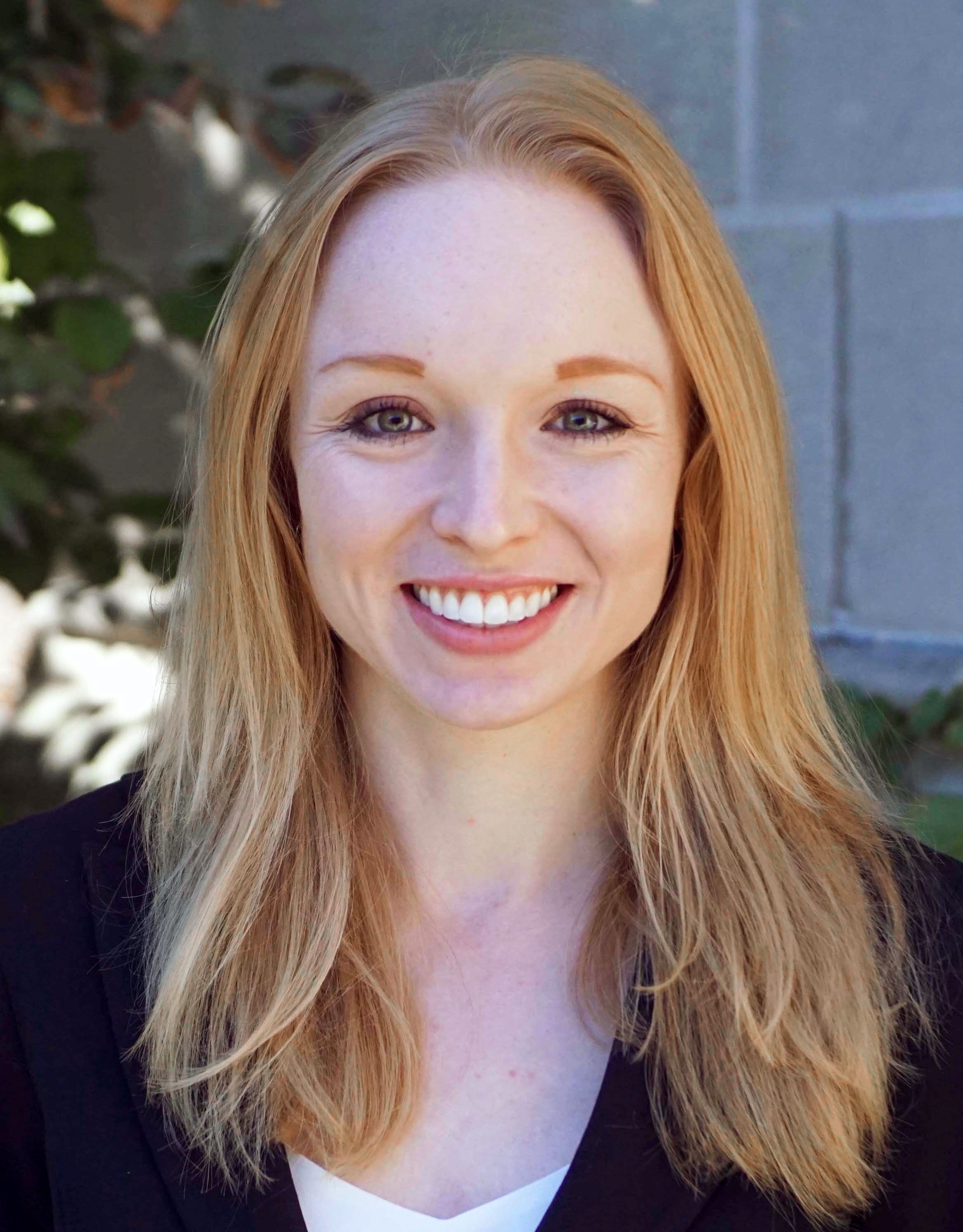
Emily Willson Wenger ’16
Emily Willson Wenger ’16 always had an affinity for math, but she didn’t realize how integral it was in her life until she participated in the Wheaton in the Holy Lands program. After a summer of humanities-focused work, Wenger found herself making up math games while traveling around Rome. She would count cars and invent statistical problems for herself. Just like that, she realized she couldn’t walk through the world without math on her mind.
The following summer, after her junior year, Wenger landed an internship with the U.S. Department of Defense. This led her to work as a research mathematician for the government after she graduated from Wheaton with a double major in mathematics and physics. Her experience with the DOD piqued her interest in issues of security and privacy, and when she realized she needed a Ph.D. to do the kind of work she was interested in, she returned to Illinois to attend the University of Chicago.
As a graduate student, she began researching artificial intelligence. Specifically, Wenger set out to understand the limits of and find weaknesses in AI models. In her graduate research, the issue of data privacy and autonomy rose to the surface, and she developed an algorithm that distorts photos in tiny ways so that they are recognizable to the human eye, but thwart facial-recognition technologies.
When the generative AI craze took off a few years ago, several artists found Wenger’s anti-facial recognition technology and reached out to her team through an old project listserv. The artist group (including Nathan Fowkes, who contributed to DreamWorks’ “Prince of Egypt” concept art) wanted to find trustworthy ways to protect their original work from being used to “train” AI models.
“We built Glaze because we felt like AI was threatening the livelihood of artists, and continues to,” Wenger said.
This led Wenger and her research colleagues to develop Glaze, a program that prevents AI from mimicking artists’ styles. This innovative program earned her a spot on the prestigious Forbes 30 under 30 list, an annual recognition of young entrepreneurs in industries ranging from entertainment and style to healthcare and consumer technology. For Wenger, though, the desire to protect creativity and autonomy runs deeper than a nifty new product. She acknowledges that AI has the potential to change the creative landscape and has reasonable uses.
“At the same time, I think God created, and we’re called to create, and I’m not convinced that AI really aids us that much in that task, in terms of allowing us to express ourselves,” Wenger said. “It seems like, in the creative spaces in particular, it just plucks away at our autonomy and makes us rather careless thinkers.”
Wenger’s Wheaton education laid the groundwork for her interest in research. She had the opportunity to do research with several faculty, including Dr. Heather Whitney who taught in the physics department at the time.
“The faculty showed me how fun it can be to explore a concept that no one else has thought about and then create it,” Wenger said.
Wenger’s time at Wheaton also prepared her to think critically about the technological advances being made around her. She tries to ask questions that others in the industry might not be willing to ask. Just because the technology exists to do something, doesn’t mean it should necessarily be done.
She remembers theology classes and chapel talks at Wheaton discussing how the Israelite exiles are instructed on how they should live while in exile in Babylon. In an industry where huge amounts of money are thrown into projects with sometimes little thought about the implications, Wenger takes the lesson spoken to exiles in Jeremiah 29 to heart.
“Seek the welfare of the city,” Wenger said. “I take a lot of comfort from the exile and the fact that the Israelites were able to seek God in the midst of a really worldly setting.”
Throughout her career, her job title hasn’t included the word “ethicist,” but as a Christian working in tech, ethics is never far from her mind. For Wenger, being in the world and not of the world means asking critical questions that other people might not be asking.
“I went into math because I thought I’ll never have to write an essay or deal with an ethical issue, because math is very black and white,” Wenger said. “But in retrospect, my role is not black and white and the subject is not, and I’m really grateful for the training that I had.”
To learn more about mathematics at Wheaton, visit wheaton.edu/math.
